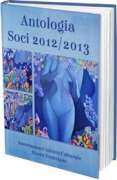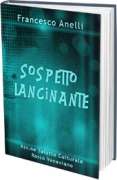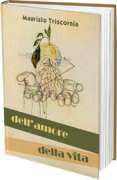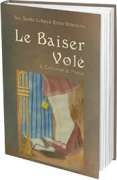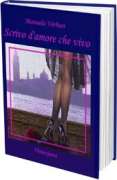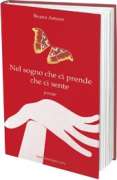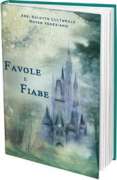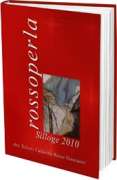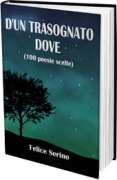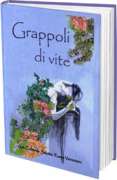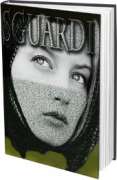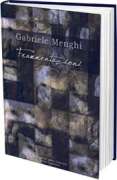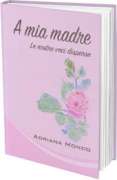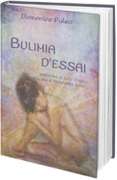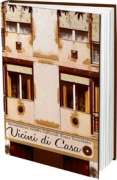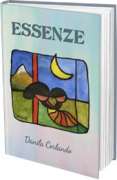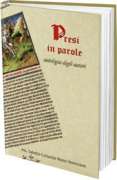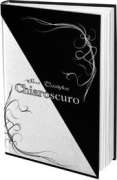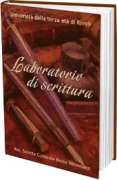Part two, English version
Sargent Angelo Pirona one day, soon after Italo Balbo’s plane was shoot down, was on duty inspecting the road heading into the desert. He, as usual, leaded his men on a Guzzi bike with the platoon following in a Ro truck. They stopped for some maintenance work at a small oasis and after completing their assignment, he told his subalterns to keep going, and that he would catch up with them soon.
He rested a few more minutes, took a long swig of cognac from his canteen, followed soon after by a second swig. Things in front of him became wavy, and when he tried to start his bike, the ignition miserably failed. He decided to have a rest, and at the same time he found more comfort in his canteen. He felt asleep, taken by a drunkenness stupor, and holding the golden liquor next to him.
That was exactly how an Australian patrol, crossing the area, found him. Angelo wasn’t alarmed or surprised to be caught by the enemy. He thought that was his lucky day and saw the deprivation of the war were over for him. He smiled toward the Australian lieutenant.
“It is a day of jubilation, Sir. The war has a twist for me today; reason enough to celebrate together this moment with the cognac left in my canteen. Let’s drink together.” He addressed the young lieutenant while he offered his canteen to the Australians.
Two months later Angelo was a Prisoner of War in Cowra, New South Wales, Australia. Soon after, he opted to do voluntary work in a farm nearby. He better preferred working in the fields than lazing around in the camp. It remembered to Angelo his young days at home, when he used to help his father in cultivating the property in the northern Italian village under the Alps.
At the farm lived only Mr. McKenzie with his two youngest daughters. His son was in Singapore, fighting against the Japanese’s invasion. Since the Japanese attack of Pearl Harbor and their invasion over the other Pacific Islands, he could seldom exchange news with his family.
Within short time McKenzie came to like Angelo who gained the respect of old McKenzie and who treated Angelo as one of the family, seeing the way he used to hand the hard work in the farm without complains. Angelo came to love the new open country and the friendly atmosphere of the locals and at the end of the hostility became a natural conclusion opting to remain in Australia.
Angelo’s decision was also influenced by his father’s letters telling that Italy in those days had nothing to offer and that the country was reduced to rubble and only ruins and miseries were left, without any possibility of a soon recovery.
The old McKenzie approached Angelo and offered a secure work in the farm and a guarantee of fare wages even after his son’s return from a Japanese prisoner war-camp. \
~*~
The Carnia villages are enclosed into seven narrowed valleys created by the tributaries of the river Tagliamento, bordering North with the Corinthian valley in Austria and divided by a high pass through the Carnic Alps. History takes back to Prehistory with the first settlements but certainly the Romans had marked the region with their great engineering work and living testimony, the remains of their cities and the construction of the first Roman road that takes into Corinthia.
Life in the valleys has certainly always been hard. The mountain countryside has never returned abundant crops to the locals and which scarcely grows to that altitude in relatively small clearings, created over the centuries, for familiar use, around the village’s houses.
These valleys, through time had represented a strategic military bastion of defense, and that saw an escalating in fortification just before the beginning of the Second World War, a defensive line to arrest a possible invasion from the North, and created at the time in which Italy saw Austria being invaded and occupied by the Third Reich.
But what a joke! That was a typical Mussolini’s dream that changed direction within two years, when the initial potential enemy became overnight the stronger of the Italian alleys and sealed with Il Patto d’Acciaio. (The Steel Alliance)
~*~
It was in one of this valley where Lucia and her family lived. The rugged district present only a few houses, named by the locals Pissebus, and situated a mere three kilometers out of town. The arduous terrain had a lunar desolated appearance, cut into a rocky alluvial bed, at the foot of Mount Amariana. Over the millenniums, the location had accumulated a larger debris bed from that continuous washing to the valley of the mountain’s walls that at springtime, with the melting snow, created alluvial torrents.
Lucia’s father worked as a ranger in the Forest Department, and her mother was a humble servant with the richest family in the district, the Vedovatos.
Lucia was a teenager and responsible to her mother over her younger sisters’. She was also responsible to look after the house before her parents returned from work.
It was Pietro’s habit, Lucia’s father, of returning home late the day he received wages.
On those special nights, he enjoyed his time over the local osteria in piazza Santa Caterina, drinking and discussing politics with friends and after the local places were closed, with a little left over money in his pocket, drunkenly he headed home.
Drunkenness transformed him from his normal benevolent way when sober, into a rude lunatic person, who took pleasure in terrifying his family. On those occasions he accused them all.
Without reason, he complained about the dinner left for him, and accused the wife of no caring enough for her master. Under this malefic spell he mistreated anyone who crossed his path, creating any possible excuse to belt the unlucky one. His complains were numerous, from the untidiness of the house to the fact that his favorite rocking chair was moved from his favorite spot, or that the kerosene lamp’s glass had a smoke coat. But his final complain was about the wine left for him, of inferior quality with a vinegary taste.
Reasons of altercation with his wife, Maria, abounded, who in those occasions was scared and unable to calm his ill humor. As a result of those altercations, Maria, showed on the following morning the bruises inflicted to her by the maniacal Pietro’s drunkenness behaviors.
In the previous night, their marital bedroom was transformed into a battlefield, where Pietro cruelly assaulted and punched the poor woman, who tried to refuse his maniacal sexual requests. The nocturnal quite of the house, in those abusive nights, was broken by Maria’s hysterical cries and the cracking noises of their bed echoing throughout the house.
Over the following weeks with Pietro short of pocket money for his drinks at the osteria, calm flowed around the domestic walls, and he presented a different himself. He was tolerant with his family, and seldom anything would disturb him. He sat comfortably in his rocking chair, sucking his pipe, and inhaling the acrid smoke of the tobacco, in a unconscious hibernation laid uncurantly of what was happening around him and with his mind wandering around a world of no existence. In those calm evenings Maria relaxed, silently busying in mending socks or knitting pullovers for the kids, and Lucia, in her duties of family entertainer, had the privilege to read aloud stories from borrowed library books.
The two teenager boys in the family kept away in a corner above any women’s family feud. They only recognized one Master of the house, and well respected their father.
~*~
- Blog di Carlo Gabbi
- 1723 letture

 Sostieni anche tu il nostro sito
Sostieni anche tu il nostro sito
 le nostre pubblicazioni
le nostre pubblicazioni 
